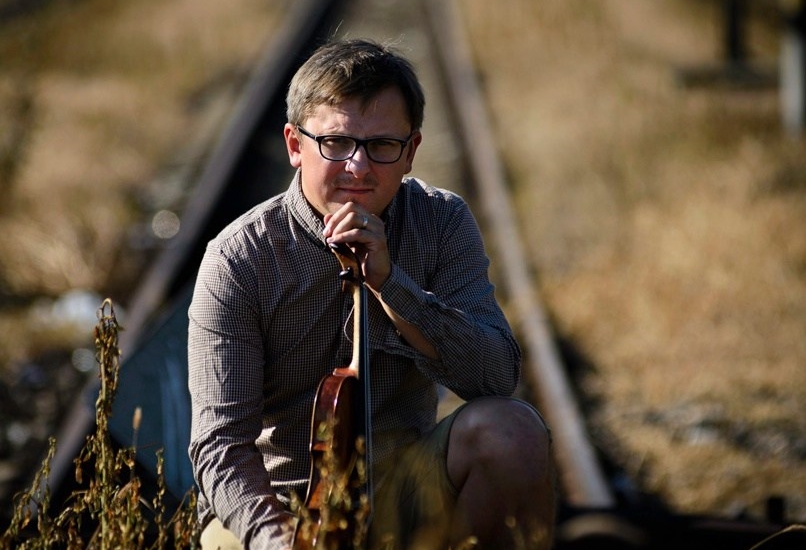L’annonce du Concert du compositeur Elia Koussa au Centre Culturel Safadi a été publiée sur le site Libnanews.com et l’Agenda Culturel, via un texte écrit par Marie-Josée Rizkallah que voici (il peut être lu aussi sur les sites en cliquant ici sur Libnanews ou l’Agenda Culturel) :
Le Conservatoire national supérieur de musique et le Centre Culturel Safadi de Tripoli ont le plaisir d’inviter tous les amateurs de musique classique à un concert d’exception donné par le compositeur et pianiste libanais Elia Koussa, le samedi 16 décembre 2017 à 18h00 précises.
Un programme magistral sera gracieusement présenté au public au cours duquel le brillant musicien du pays des cèdres honorera les trois grands B : Bach, Beethoven et Brahms. Un choix fin de bon aloi, qui délectera les spectateurs et leur permettra de percevoir la maîtrise sensationnelle d’Elia Koussa du répertoire des trois illustres compositeurs allemands.
Le choix de la date n’est cependant pas fortuit puisqu’il coïncide avec la date de naissance de Beethoven qui sera célébré à la fin du concert par la « Sonate pour piano no 32 en ut mineur, opus 111 », son ultime sonate et une de ses dernières œuvres pour le piano, connue spécialement pour la difficulté de sa technique et de sa particularité mystique et visionnaire. Cet hommage sera précédé des « Quatre pièces pour piano, opus 119 » de Brahms, ainsi que de la « Toccata et fugue en ré mineur, BWV 565 » de Bach originellement conçue pour orgue et savamment arrangée pour piano solo par Ferruccio Busoni (programme ci-joint).
À tous les afficionados de pianos et fans des BBB, un seul rendez-vous à Tripoli le 16 décembre, à ne pas râter ! Un autre concert sera donné après les fêtes à Beyrouth, dont les détails seront précisés ultérieurement.
Le parcours musical académique d’Elia Koussa a pris naissance au Liban, et s’est perfectionné en Allemagne où il a côtoyé les sommités dans le domaine de la composition musicale moderne européenne telles que Claus-Steffen Mahnkopf, Wolfgang Rihm, Klaus Huber, Reinhard Febel, Reinhard Wolschina, Michael Obst, Helmut Zapf, Wolf Günther Leidel, et Dan Dediu.
Décrochant une Licence en piano du Conservatoire de Beyrouth avec mention excellent, il se rend en Allemagne où il obtient un diplôme en composition de l’Académie de musique Hochschule für Musik Franz Liszt à Weimar, puis un master en composition de l’université Hochschule für Musik und Theater Felix Mendelssohn Bartholdy à Leipzig.
De retour au Liban, Elia Koussa rejoint le Conservatoire National Supérieur de Musique à Beyrouth où il enseigne la composition, le piano et la théorie. Il fonde d’ailleurs le département de « Composition de musique contemporaine » au sein de ce même Conservatoire. Il enseigne également à l’Université Notre-Dame (NDU) où il est maître de conférences, ainsi qu’à l’Université Antonine (UA). Détenteur de prix internationaux, dont une mention honorable au prix international de musique pour l’excellence dans la composition (2011), Elia Koussa est en outre lauréat de la Compétition Weimarer Frühjahrstage (2009), et du prix Baerenreiter au festival de musique contemporaine à Weimar (2009). Ses œuvres sont programmées dans des festivals et concerts locaux, européens et américains. Pour plus d’informations sur l’artiste, visitez son site Eliakoussa.com
Au programme du concert :
1- Johannes Brahms (1833-1897)
"Quatre pièces pour piano", opus 119
1- Intermezzo opus 119, n. 1 en si mineur
2- Intermezzo opus 119, n. 2 en mi mineur
3- Intermezzo opus 119, n. 3 en ut majeur
4- Intermezzo opus 119, n. 4 en mi bémol majeur
2- Johann Sebastian Bach (1685-1750)
"Toccata et fugue en ré mineur, BWV 565" (pour orgue)
arrangée pour piano solo par Ferruccio Busoni
3- Ludwig Van Beethoven (1770-1827)
« Sonate pour piano no 32 en ut mineur, opus 111 »










